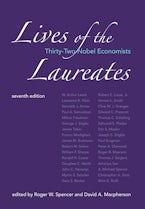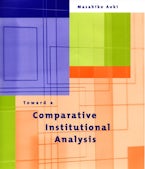Persson and Tabellini's The Economic Effects of Constitutions beautifully complements their earlier Political Economics. This sequel defines and makes serious empirical progress on a broad research agenda for the complex issue of how constitutional statutes (from forms of government to electoral rules) shape policy outcomes (such as the size of the welfare state and the distribution of benefits). Written by two leading contributors to modern political economy, this stimulating and very readable book is essential for all those concerned with and involved in constitutional design.
Jean Tirole, IDEI, Toulouse
The authors have succeeded in producing an extraordinary book that will open up this field and be the definitive reference for many years to come.
Roger B. Myerson, W. C. Norby Professor of Economics, University of Chicago
This work is destined to be a much-read monograph on an important subject: how much we can learn from cross-sectional variation in certain constitutional rules across the world. It is much the best work on the issue to date.
Timothy Besley, London School of Economics & Political Science
Democracy comes in many different forms—presidential and parliamentary, with elections based on plurality or proportional representation, and so on. Pathbreaking research by Persson and Tabellini has shown that these differences in political constitutions lead to large and systematic differences in economic outcomes. This book consolidates and extends their empirical work. It should be required reading for intellectual leaders in all countries contemplating reforms of their political institutions, and for all political scientists and economists who study such reforms.
Avinash Dixit, Sherrerd University Professor of Economics, Princeton University












